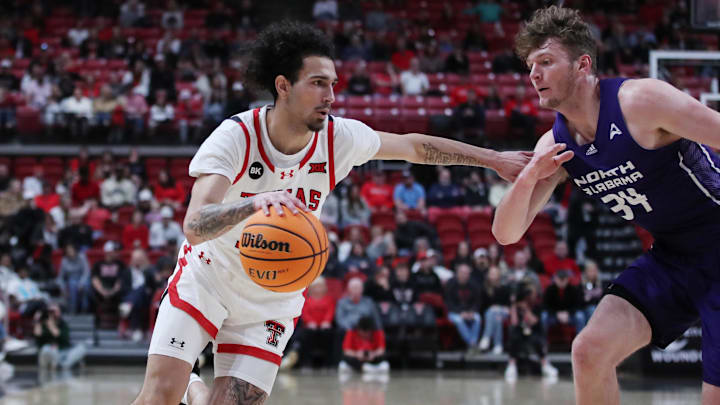Can Texas Tech defend elite guards?
The Big 12 is the land of the dominant guard. Virtually every team in the conference boasts at least one high-scoring backcourt player and we still don't know whether or not the Red Raiders have the defensive ability to keep those opposing weapons in check.
Of the top 20 scorers in the Big 12, 14 are guards. That includes Pop Isaacs and Joe Toussaint, of course.
Will the Red Raiders be able to handle teams with multiple talented guards? That's going to be tough.
Toussaint is the best defensive guard the team has but, again, he's only 6-feet tall. Isaacs is also a willing defender but those two Red Raiders are only average defenders with each having defensive ratings (an estimation of how many points per 100 possessions a player surrenders) right around 100, which is the definition of average for a college player as such a rating is considered mediocre.
Now, Darrion Williams is a solid defender with a defensive rating of 94 and he could be asked to check a guard. But that would take him away from the wings that opposing teams might deploy and there are plenty of quality wings in the conference as well.
The real concern is what to do defensively with Kerwin Walton, who is second to last on the team with a defensive rating of 101.6. What he brings to the table on offense, (which we will discuss in a moment) could be neutralized by his defensive inefficiencies and that would be a huge problem for Tech in Big 12 play.
Defense is where a guy like Lamar Washington could be an asset off the bench. The sophomore is 6-foot-4 and he has a defensive rating of 96. However, he is a huge offensive liability given his poor shooting touch and tendency to turn the ball over. Thus, it might be hard for McCasland to trust him for long stretches of a game.
Somehow, though, McCasland is going to have to find a way to help his team slow down elite guards. That challenge begins on Saturday against Texas which features guards Max Abmas (17.2 points per game) and Tyrese Hunter (12.7 points per game). Down the road, teams like Baylor, Oklahoma, Kansas, and Houston will also bring multiple high-scoring guards to the table and that's a challenge that most of Tech's opponents thus far have not been able to offer. So how will the Red Raiders go about defending teams like that?
